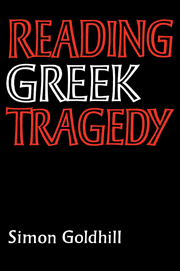Book contents
- Frontmatter
- Contents
- Preface
- 1 The drama of logos
- 2 The language of appropriation
- 3 The city of words
- 4 Relations and relationships
- 5 Sexuality and difference
- 6 Text and tradition
- 7 Mind and madness
- 8 Blindness and insight
- 9 Sophistry, philosophy, rhetoric
- 10 Genre and transgression
- 11 Performance and performability
- Bibliography
- Index
9 - Sophistry, philosophy, rhetoric
Published online by Cambridge University Press: 08 February 2010
- Frontmatter
- Contents
- Preface
- 1 The drama of logos
- 2 The language of appropriation
- 3 The city of words
- 4 Relations and relationships
- 5 Sexuality and difference
- 6 Text and tradition
- 7 Mind and madness
- 8 Blindness and insight
- 9 Sophistry, philosophy, rhetoric
- 10 Genre and transgression
- 11 Performance and performability
- Bibliography
- Index
Summary
What happened to the truth is not recorded.
JULIAN BARNES‘Personally I hold that the sophist's art is an ancient one, but that those who put their hand to it in former times, fearing the odium which it brings, adopted a disguise and worked under cover. Some used poetry as a screen, for instance Homer and Hesiod and Simonides; others religious rites and prophecy … some even gymnastic physical training … Music was used as a cover by … many others. I myself, however, am not of their mind in this. I don't believe they accomplished their purpose, for they did not pass unobserved by the men who held the reins of power in their cities, though it is on their account that these disguises are adopted; the mass of people notice nothing, but simply echo what the leaders tell them … I … have always gone the opposite way to my predecessors. I admit to being a sophist and an educator.’
This quotation from Plato's depiction of Protagoras provides an excellent introduction to the range of problems involved in discussing the sophists, to whom I have often referred in this book as a major factor in understanding fifth-century thought and drama. In Chapter 6 I discussed the conception of the poet having privileged access to truth and forming the education of the citizens.
- Type
- Chapter
- Information
- Reading Greek Tragedy , pp. 222 - 243Publisher: Cambridge University PressPrint publication year: 1986



